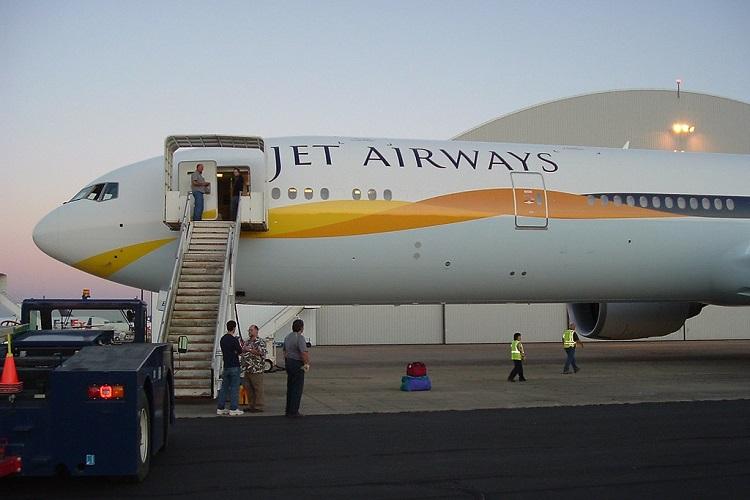Jet Airways: Crisis Explained
19-Feb-2020

JET AIRWAYS : CRISES EXPLAINED
Jet Airways: From boom to downfall, crisis explained
Jet Airways, India’s biggest full-service airline has been in the news for a couple of months now due to their massive financial crunch. Here’s a lowdown of how things went south for Jet Airways.
About Jet Airways:
Known for its premium service, Jet Airways was founded by Naresh Goyal in 1993 after India ended a state monopoly (Air India & Indian Airways) on aviation. Currently Abu Dhabi’s Etihad Airways owns 24% shares in Jet Airways.
One of India’s top three airlines in the past decade, Jet Airways controls 13.9% of Indian Aviation Market. It also flies to international destinations including London and Singapore.
Troubled Flight:
In August 2018, Jet Airways asked their employees to take a 25% cut in salaries. In September, was only able to pay 84% of its employees. In December 2018, decided to stop free meals for most of its domestic economy class passengers from January to cut down the operating cost.
On 1st January, 2019, Jet Airways defaulted on its debt repayment. Ratings agency ICRA Ltd cut the long-term rating of the airlines from C to D on loans and bonds issued by the airline, which has reported three consecutive quarterly losses of over Rs.1000 Cr each since the quarter ended March 2018.
As of March 2019, Jet owed banks Rs.8414 Cr. While banks were trying to work out a resolution plan with the airline, its lessors began repossessing aircraft due to unpaid dues. Towards the end of February, Jet had cancelled over 300 flights for February and March 2019.
Reasons for Turbulence:
The rising cost of aviation turbine fuel (ATF) especially from June to September 2018 when there was a significant spike in global oil prices, forced airlines to increase spending on ATF. The falling rupee hurt the airlines.
The low-cost model, followed by budget airlines in India, forced Jet to lower it fares too. But, Jet Airways being a premium airline, continued to offer full services, thereby increasing operational costs and which forced it to borrow more from banks to stay afloat.
After two consecutive years of profits in fiscal 2016 and 2017, Jet incurred three back-to-back quarterly losses in 2018. The trouble for the airline intensified in the third quarter (July-September) when it encountered a loss of Rs.1297.5 Cr.
Analysts say fall in yields is due to airlines not being able to charge a premium on fares booked at the last minute.
Role of Etihad Airways:
Back in 2013, when Jet had a debt of over $2 billion, it struck a deal with UAE-based airline Etihad, that allowed foreign airlines to invest in domestic airlines. Etihad picked up a 24% stake in Jet for around Rs.2000 Cr at the time, giving it two seats on Jet’s board.
In March 2019, Etihad offered to give Rs.4200 Cr but put forward several conditions. Since the conditions were not acceptable, the deal fell through.
Role of DGCA:
In theory, lessors have the option to file a complaint with the DGCA (Directorate General of Civil Aviation), which in turn can cancel a plane’s registration within five working days. But this is subject to some conditions such as clearing dues owed to airport operators, fuel vendors, tax authorities and other private entities.
Avolon, one of the world’s biggest aircraft lessors, on Thursday applied to the DGCA to take two of its planes placed with Jet outside of India, making it the first to pull planes out on a non-consensual basis.
Bank-led resolution plan (BLRP):
State Bank of India (SBI), is piloting a bank-led resolution plan (BLRP). A mix of equity infusion, debt restructuring, and asset monetization aimed at filling the funding gap of around Rs.8500 Cr; that includes proposed repayment of aircraft debt of around Rs.1700 Cr.
For BLRP to work, it needs to be approved by the consortium of lenders, the overseeing committee of the Indian Bankers’ Association, the board of directors of Etihad Airways, the promoter of Jet Airways, the Securities and Exchange Board of India, the Ministry of Civil Aviation, and the Competition Commission of India.
As per the current situation during the bidding process, Etihad Airways expressed its interest to buy stake in Jet Airways under the bidding process run by the airline’s lenders on Friday. The State Bank of India-led consortium of 26 lenders also received two non-binding bids for purchasing stake in the embattled airline. Many of the bidders soon will be owning it’s share in the Jet Airways, which is no more in operations now.
JAIN AVIATION Says
Over the years, Jet Airways has been one of the leading airline in the industry in the terms of service and costs. We wish India’s biggest full-service airline recovers to pink of its health and flies high in the sky.